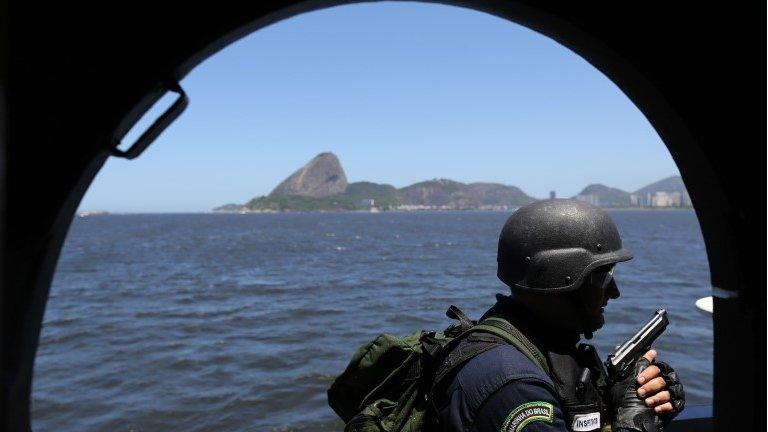Brazil troops in Rio slum operation before World Cup
- Published
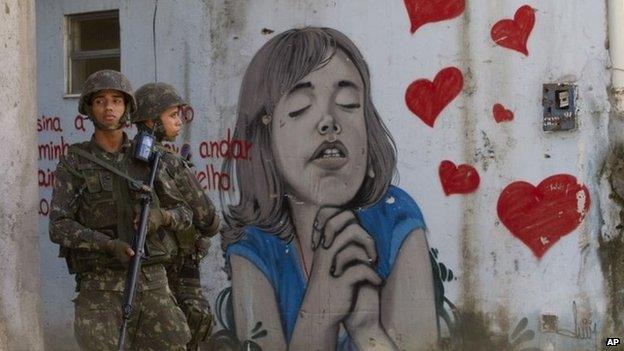
The soldiers are relieving police who entered the Mare slum last week
Nearly 3,000 Brazilian troops have begun occupying one of Rio de Janeiro's most dangerous shanty towns.
It is the biggest such operation since the authorities began tackling powerful drug gangs in key areas of the city ahead of the football World Cup in June and July.
Tanks, helicopters and armoured vehicles are being used in the operation at the Mare slum complex.
Elite troops are expected to remain in the area until after the tournament.
For decades the area, near Rio's international airport, has been controlled by some of the city's most powerful drug gangs.
Turf wars between rival groups have often forced the closure of the highway linking the city centre to the airport and other key access roads to Rio, where the World Cup final will be played.
The soldiers will replace policemen who entered the area last Sunday in the first stage of the occupation.
Three hundred of the 2,000 military police officers who took part in last week's operation have remained in the community.
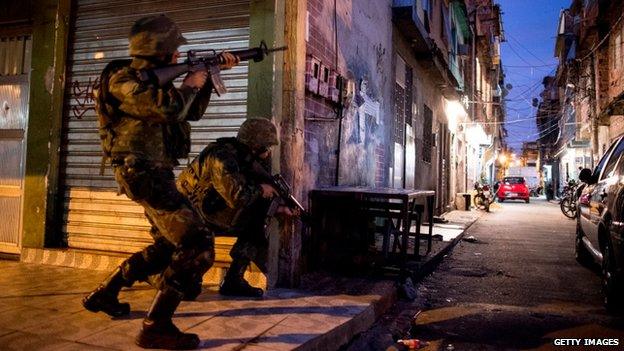
The security forces believe that most drug gangs left the area days before the announced operation
They are expected to leave once the 2,700 soldiers - most of them elite army troops - secure the area.
The airspace above the shanty town has been closed indefinitely, which will force planes to change their landing and take-off routes.
'Curfews and shootings'
The programme of "pacification" of Rio's notorious shanty towns, or favelas, began in November 2008.
There have been setbacks to the scheme, with some clashes and attacks on security forces in favelas previously occupied.
But the programme, known as Pacification Police Unit (UPP), has the support of most of the population, says TV Record's editor Renato Chappot in Rio.
"In previous occupations, residents came out to the streets to cheer the police and celebrate," he said.
"Before the UPPs, people in the favelas lived in fear, in a war-like situation. Many residents were injured by stray bullets and they have to obey curfews imposed by the drug lords," added Mr Chappot.
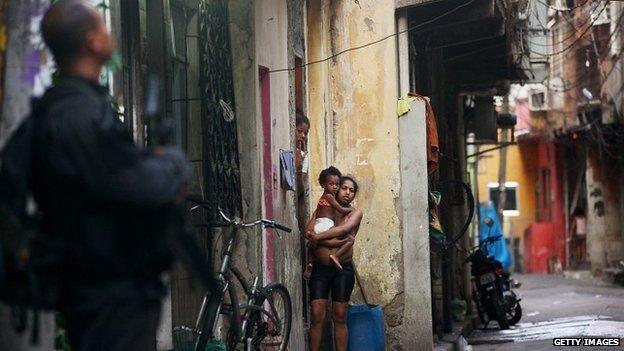
The area is an amalgamation of 16 different favelas, controlled until now by some of Rio's most notorious drug lords
Many point out, however, that other types of crime, such as muggings and car robberies, have gone up sharply since the pacification scheme began.
Many gangs have been pushed into other areas of the city and have had to pursue new criminal activities to replace the income lost with illegal drug sales.
Some 160,000 people live in the 16 favelas that make up the Favela district, according to the Pereira Passos Institute, linked to Rio's mayor's office.
Two of the favelas are controlled by the Comando Vermelho gang; the other 14 by a rival group, the Terceiro Comando Puro.
The operation in the Favela da Mare community was ordered by President Dilma Rousseff, as Brazil prepares to host the biggest event in its history.
The World Cup will begin in Sao Paulo on 12 June and will end in Rio's famous Maracana stadium on 13 July.
- Published31 March 2014
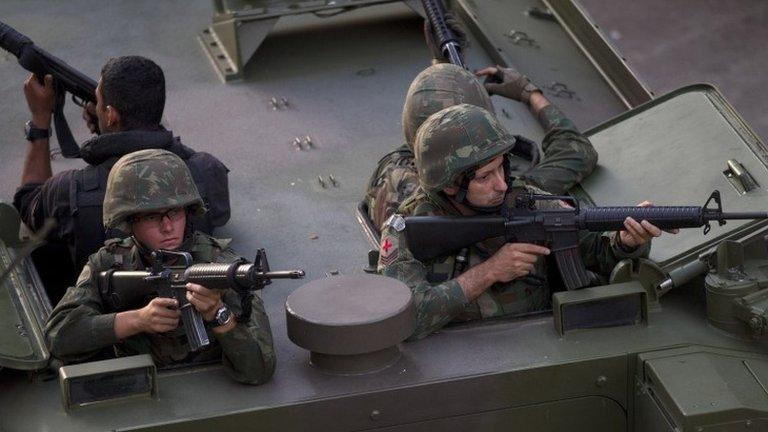
- Published21 March 2014
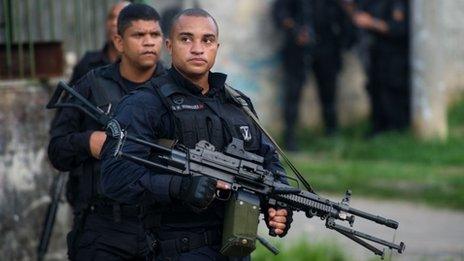
- Published27 February 2014
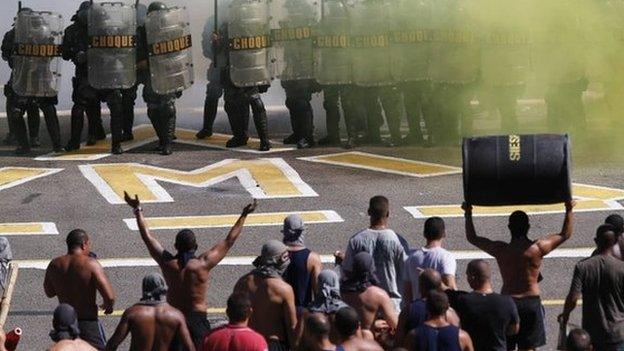
- Published21 February 2014
